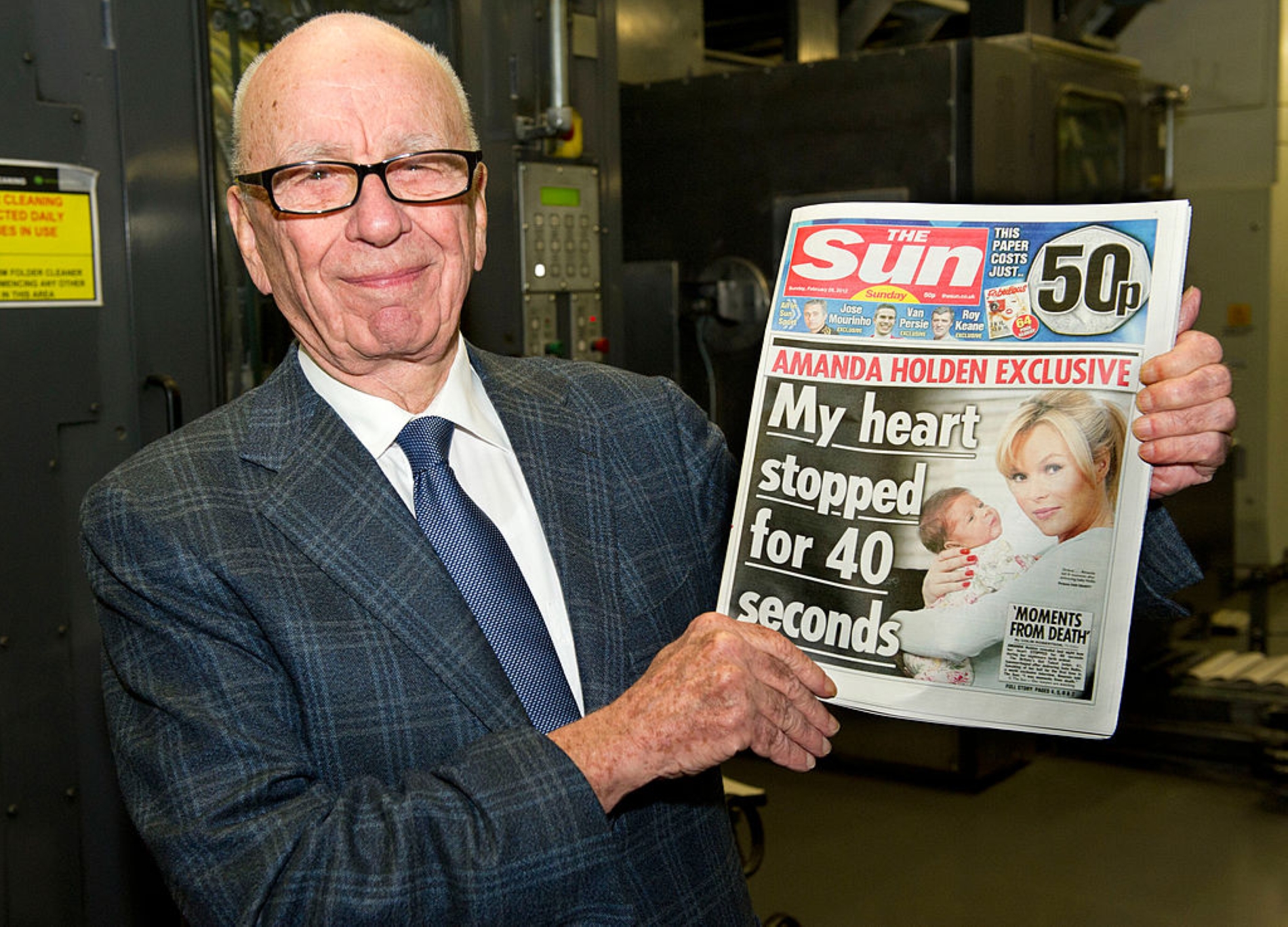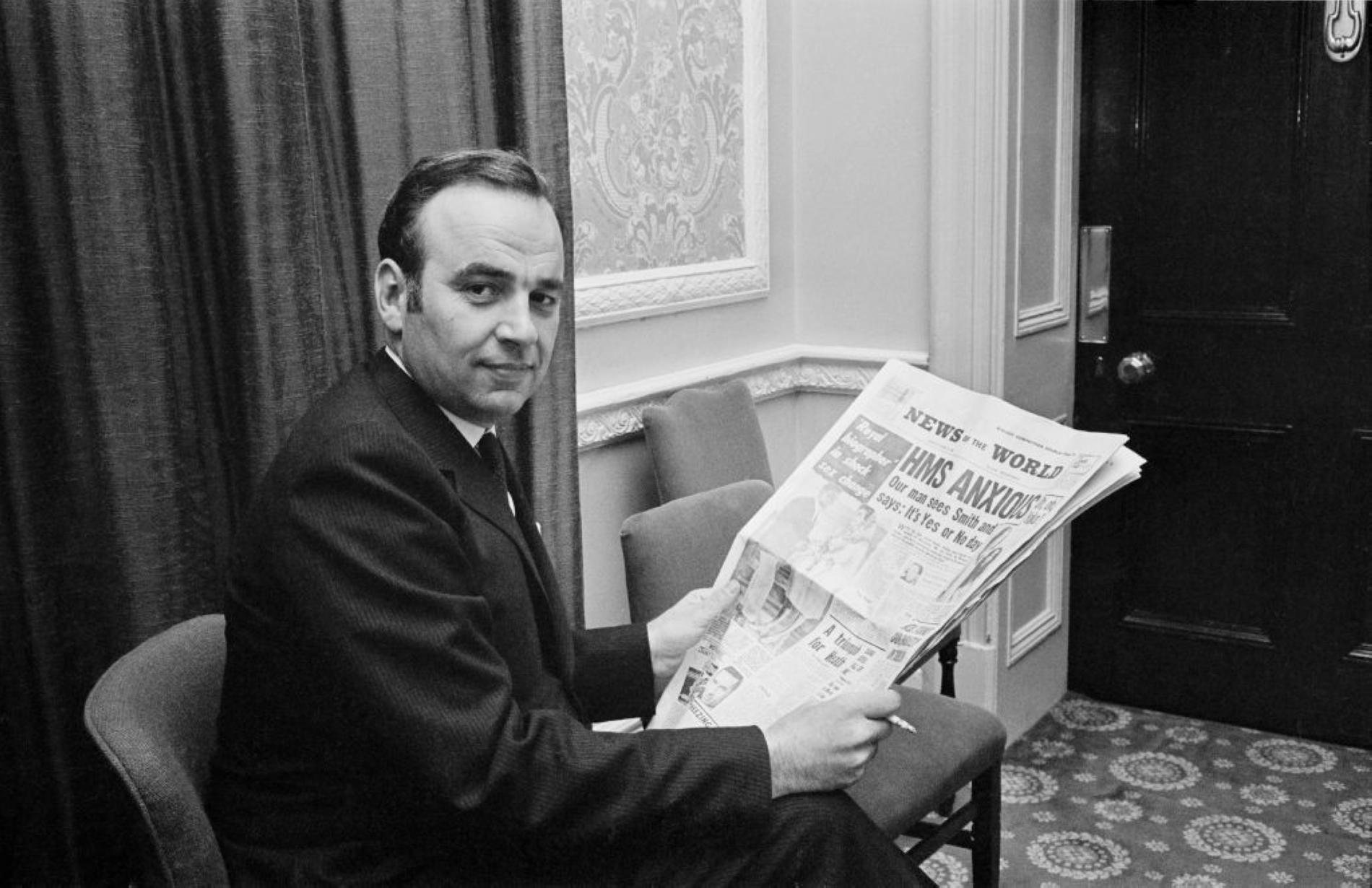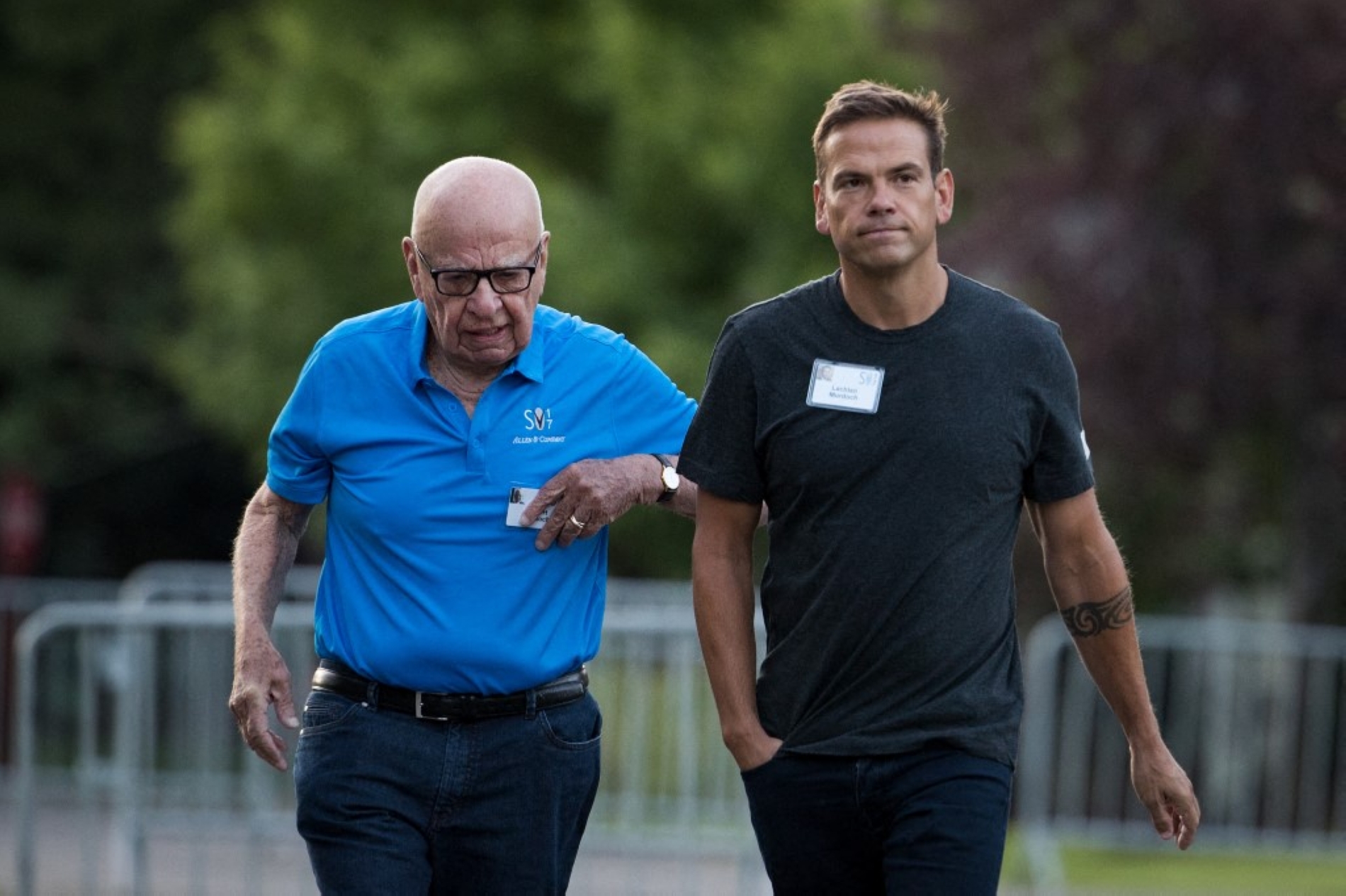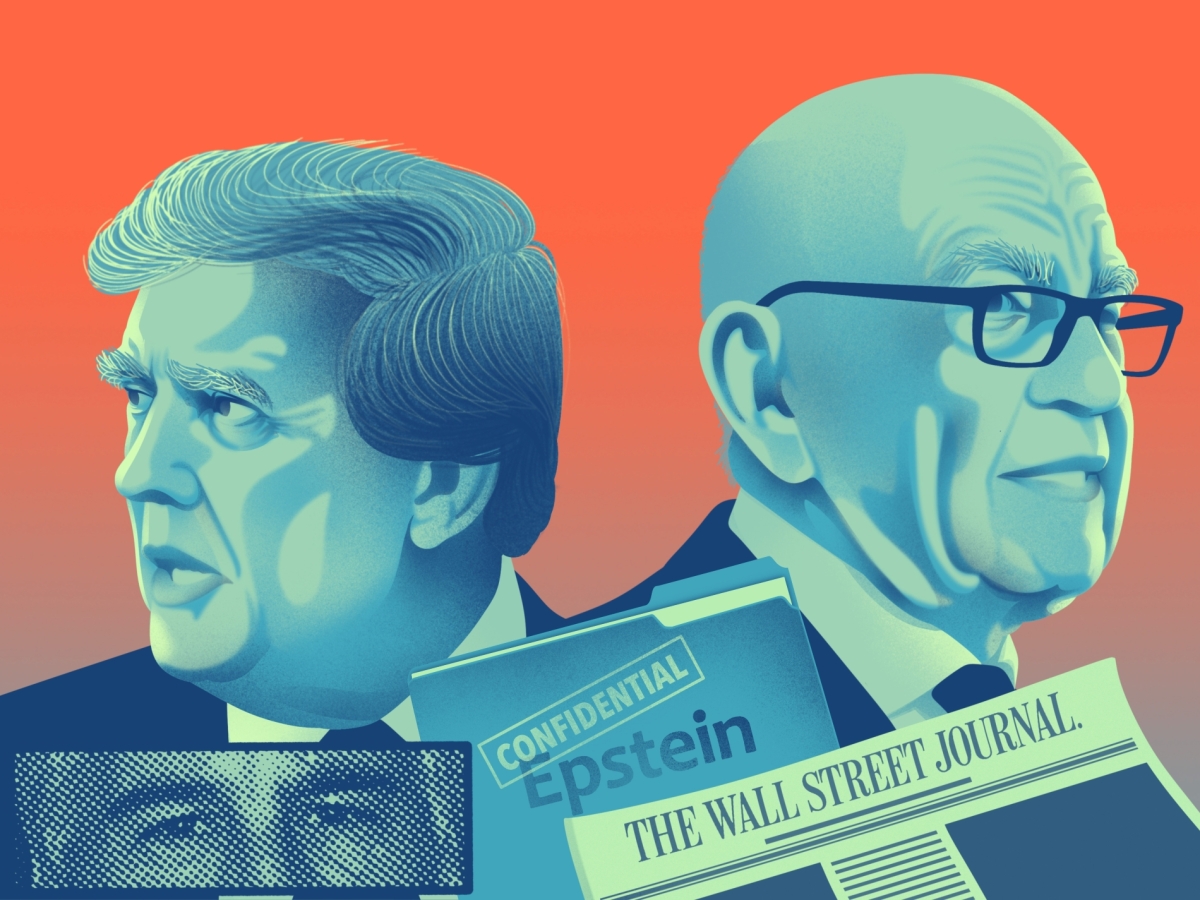When media mogul Rupert Murdoch said he was stepping down as chairman of Fox and News Corp in September 2023, with his son Lachlan replacing him to head both companies, no one could have expected him to take on President Donald Trump in a multi-billion dollar lawsuit over the Wall Street Journal, one of his newspapers, a couple of years later.
On Tuesday, 15 July, the WSJ had approached Trump’s team, stating it planned to publish allegations that Trump had composed a crude poem and doodle as part of a collection compiled for Jeffrey Epstein’s 50th birthday.
The claim would have been damaging at any moment, but the timing was terrible for the president. The Epstein issue was developing into the biggest crisis of his presidency. MAGA supporters had been angered by the Trump administration’s refusal to release government files relating to the late sex offender.
So sensitive was the claim that Trump called WSJ editor Emma Tucker from Air Force One in an effort to shut down the story, branding it as “fake”. When Tucker refused his request and published the article, Trump responded by seeking $10bn in damages.
Now, in the most recent development, Murdoch has agreed to give Trump regular health updates in a deal to postpone his deposition in the president’s $10bn lawsuit over the article about the “bawdy” birthday letter Trump allegedly wrote to Epstein in 2003.
The deal comes a week after the president’s lawyers called on the 94-year-old Murdoch to be deposed within the next 15 days due to his advanced age and health problems over the years, implying that the Fox News founder could die before the case went to trial.

“Murdoch is 94 years old, has suffered from multiple health issues throughout his life, is believed to have suffered recent significant health scares, and is presumed to live in New York,” the Trump team’s motion stated last week.
“Taken together, these factors weigh heavily in determining that Murdoch would be unavailable for in-person testimony at trial.” With the president’s attorneys adding that it was “presumable” that Murdoch would be “unavailable for trial” due to his age and health, along with the fact that the lawsuit was filed in Florida, the judge in the case ordered Murdoch to respond to the request by 4 August.
Per court filings, a joint deal was subsequently reached to postpone the expedited deposition of Murdoch, and the parties agreed not to engage in discovery until the WSJ’s motion to dismiss has been decided. Despite the WSJ looking to dismiss the complaint, and Murdoch suggesting that he’s in the fight for the long haul, Trump has claimed that Murdoch wants to reach a settlement.
Early life and career
Born in Melbourne in 1931, Keith Rupert Murdoch developed an interest in the media at a young age. While at Oxford University in the UK, he tried to buy the student newspaper and flirted with left-wing politics.
His father, Sir Keith Murdoch, one of Australia's most distinguished media owners, died in 1953 and left the family a controlling share of a single newspaper, the Adelaide News. Rupert returned from Britain to run it aged 22.
He quickly expanded the business, buying a string of other titles in Australia and New Zealand and growing their circulation by employing racy tabloid techniques imported from the UK. He was known to personally write headlines and redesign pages, although he claimed he gave editors a great deal of freedom.

In 1968, he bought the UK's News of the World and, within a year, had picked up the ailing Sun newspaper, relaunching it as an irreverent tabloid. In 1986, by now owner of the UK's Times and Sunday Times newspapers as well, Murdoch moved all four newspaper titles into a huge printing plant in London and sacked 5,000 of the staff.
The ensuing battles with strikers outside the Wapping site heralded a revolution in Britain’s newspaper industry as old ways of working were ditched. A television revolution followed, as Murdoch went on to launch the satellite TV service Sky in Britain.
He began to focus on the US, where he had gained a foothold in 1976 with the tabloid publication, the New York Post. In 1985, News Corp bought 20th Century Fox, establishing America’s fourth major television network, Fox, and handing Murdoch a Hollywood movie studio.
The decline of the newspaper industry in recent years has been hard on some Murdoch titles. Recently, he was involved in a deal to sell Fox to Disney, although not its news operation, and Sky to Comcast. This, he felt, would free the company of parts of the business that had been losing revenue. The Murdoch family's net worth is currently estimated to be $22.5bn (£17.6bn) by Forbes magazine.
Chased by controversy
The spat with Trump is not the first time that Murdoch, who is said to be a key inspiration for Logan Roy, the ruthless media patriarch in HBO hit Succession, has found himself embroiled in a major controversy.
Apart from the Wapping dispute, Murdoch found himself at the centre of a major scandal following revelations that journalists at the News of the World had eavesdropped on private messages. While Murdoch has always insisted that he did not know phone hacking was going on at his publication, he was forced to shutter the tabloid and his UK publishing empire has paid out more than £1bn in compensation and other related costs to victims.

Even family members are not off-limits in the Murdoch empire in the mogul’s ruthless pursuit of victory in business. The patriarch last year clashed with three of his children— Prudence, Elisabeth and James—very his attempt to change the family trust to hand over complete control to Lachlan. Following a high-profile legal battle that drew comparisons to Succession, Murdoch was ultimately defeated, setting the scene for an almighty tussle over his legacy.
Now the scene is set for Murdoch to be involved in yet another major controversy following his run-in with Trump, who has adopted an increasingly aggressive stance in his attitude towards the media. The president has said the mainstream media is “on notice” after securing settlements from both ABC and CBS in recent lawsuits.
“I have been treated very unfairly by The Wall Street Journal on everything,” the president said about the newspaper’s Epstein story. “I would assume Rupert Murdoch controls it, but maybe he does, maybe he doesn’t. They're talking to us about doing something, but we’ll see what happens. They would like us to drop that. So we’ll see... They want to settle it.”












